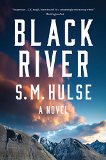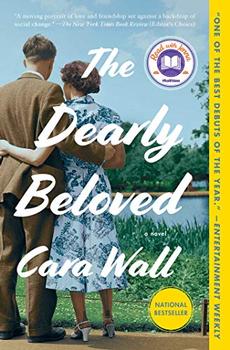Summary | Excerpt | Reading Guide | Discuss | Reviews | Beyond the book | Read-Alikes | Genres & Themes | Author Bio

A Novel
by S.M. HulseThis carefully told story richly explores themes of loss, revenge and forgiveness, fatherhood, and faith in God through the eyes of one man, Wesley Carver. The precise, evocative prose perfectly mirrors the content of this emotionally wrought debut novel.
Grieving the death of his beloved wife, Claire, Wes leaves a stack of unpaid bills and a dead-end job as a mall security cop in Spokane, WA, and returns to his former home of Elk Fork Valley in western Montana. He's there to bury Claire's remains as she requested; forcing him to see — and stay with — his estranged stepson, Dennis, for the first time in over twenty years. In his truck, "his fiddle was in its case on the floor, the DOC letter and his revolver in the glove compartment. And Claire's ashes there beside him on the bench seat." Each of these items represents a major loss for Wes. He's a widower, former musician, retired Correctional Officer for the Montana State Prison, and the survivor of torture during a prison riot that left permanent bodily scars.
Wes feels his losses deeply. He carries them close to his heart, with an almost suffocating intensity. Although Wes is stoic and impassive—infuriatingly so to Dennis—readers feel the palpable weight of what he can't vocalize. When he comes across an old quilt, "soft beneath his hand…" he thinks of Claire. "Touching it was almost like touching her." And when he wakes in the middle of the night "he lay listening...to the absence of Claire's gentle breaths beside him."
The healing power of music and the act of listening are poignant motifs woven delicately throughout his story. The way that Wes hears the world in relationship to music—the rhythm of Dennis's work in making horseshoes, the sound of the hospital machines, is especially effective.
Music in general, and his fiddle specifically, have always been central to Wes's life. Playing the instrument allowed him to speak from the heart. Being a prison guard was something he did—a way to make a living. But music was his true identity. It defined him and gave his life meaning. Losing his ability to play his fiddle was like losing a part of his soul. That scar is far worse than the burn marks on his arm.
Bobby is incidentally up for parole and Wes intends to speak against his release, despite Bobby's claims of conversion to Christianity and his subsequent model behavior. Although he has attended and liked church all his life, Wes struggles with faith in God. He feels as though he cannot truly believe the way he yearns to. He longs for proof that God is listening. It enrages him to think that a sociopathic thug like Bobby Williams could find faith so easily. As he says, "A man like that doesn't deserve to believe...when I spent my whole life trying and still can't do it." Ultimately, the stunning revelation as to the root of Bobby Williams's conversion is both heart-breaking and affirming.
Although Wes's story is told chronologically, deftly weaving in his memories and recollections, each of the novel's four sections starts with Claire's point of view and works backwards providing us with another view into Wes's psyche. The father-stepson relationship proves to be complicated, as we learn the history of Dennis and Wes's tumultuous relationship. Once we see how they used to be with one another; with Wes playing the fiddle and Dennis dancing to his music, we feel the pain of their fractured bond with even more urgency.
This a gritty story dealing with misery and pain. After all, in a prison-town, there is no escaping the fact that bad things happen. Some people commit horrendous crimes. And yet, despite the tough truths, there is also hope, and a deep appreciation for beauty. The story is much like the rugged mountains of Montana: beautiful, yet rough and immense.
![]() This review was originally published in The BookBrowse Review in February 2015, and has been updated for the
January 2016 edition.
Click here to go to this issue.
This review was originally published in The BookBrowse Review in February 2015, and has been updated for the
January 2016 edition.
Click here to go to this issue.

If you liked Black River, try these:

by Maggie Shipstead
Published 2023
From the Booker Prize nominee and New York Times bestselling author of Great Circle, a piercing, irresistible first collection of short stories exquisite in their craft and audacious in their range.

by Cara Wall
Published 2020
A luminous debut novel about two young couples whose lives become intertwined when the husbands are appointed co-ministers of a venerable New York City church in the 1960s, spanning decades - for readers of Ann Patchett and Nicole Krauss.
Most of us who turn to any subject we love remember some morning or evening hour when...
Click Here to find out who said this, as well as discovering other famous literary quotes!
Your guide toexceptional books
BookBrowse seeks out and recommends the best in contemporary fiction and nonfiction—books that not only engage and entertain but also deepen our understanding of ourselves and the world around us.